Council reaffirms city’s commitment to fight hate
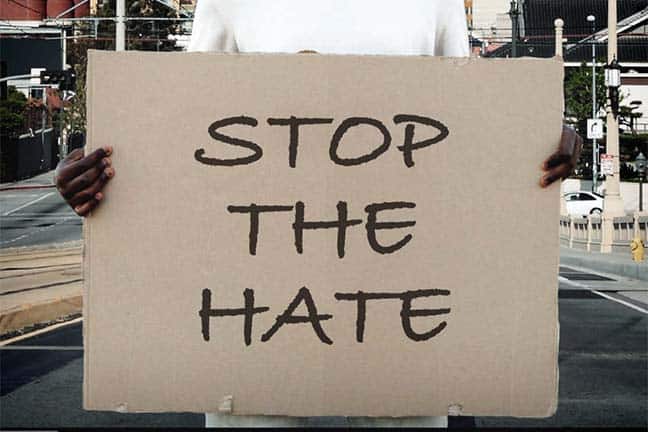
by Steven Felschundneff | steven@claremont-courier.com
On Valentine’s Day the Claremont City Council sent a love letter, affirming its commitment to accept all people and reject any form of hate or discrimination.
By a unanimous vote, the council passed a resolution “Condemning hate crimes and any other form of racism, religious or ethnic bias, discrimination, incitement of violence or targeting a minority.”
The resolution was requested by council member Jennifer Stark after anonymous antisemitic fliers were circulated in town last month. The timing of the resolution could not have been more spot on, with the targeted shooting of two Jewish men in Los Angeles February 15 and 16. The first shooting occurred less than 12 hours after the council adjourned on Valentine’s Day.
The suspected shooter, Jaime Tran, who had made antisemitic comments in the past, was arrested February 17 and charged with two federal hate crimes, according to a news release from the United States Attorney’s Office. If convicted, Tran could face up to life in prison.
“Our Jewish community was terrorized and that terror was felt across Los Angeles,” L.A. Mayor Karen Bass said at a town hall meeting to address antisemitic violence on Monday in the Pico-Robertson neighborhood.
“If someone expresses a viewpoint of hate to you, the Los Angeles Police Department wants to know about that,” Los Angeles Police Department Police Chief Michael Moore said during the meeting. “We want to understand who the individual is. We want to understand who is doing the flyer drops.”
“Hate crimes are distinct from hate incidents, which are actions or behaviors motivated by hate that may be protected by the First Amendment right to freedom of expression,” Public Information Officer Bevin Handel said during the February 14 council meeting. Hate incidents include name calling, insults, and distributing hate materials in a public space.
For an act to be considered a hate crime, it must be directed specifically at an individual or group because of a victim’s actual or perceived disability, gender, nationality, race or ethnicity, religion, or sexual orientation. It could also be a crime if the act is directed at an associate of any of those protected classes. Because the distribution of the flyers was random and not targeted at just homes where Jewish people live, it is considered a hate incident, and likely protected speech under the constitution.
“The flyer’s hateful message triggered conversation in the community about Claremont’s values and its longstanding commitment to diversity, human rights and civility,” Handel said.
“I am really proud of some of the response that I saw from people in our community standing up to that type of language, saying that we won’t tolerate it,” council member Jed Leano said. “And if the members of our community can outright push back and say that is not acceptable here, then at a bare minimum we should be able to do the same thing.”
Corey Calaycay began his remarks by thanking Stark for bring the idea of a resolution to the council at a previous meeting.
“This is shared work that we do,” Stark said, recognizing the work Calaycay has done in the past to advance policies that support diversity, equity, and inclusion. “Thank you staff for the staff report. It shows clearly the nexus of how we got here and how it’s very consistent with our internal document, so I am very happy to support this resolution.”
As reported in the January 13 Courier, the flyers showed up in Claremont on January 8, seemingly tossed onto random driveways. The leaflets blamed Jews for the pornography industry and repeated a long debunked antisemitic hoax.
“The flyers, in my opinion, what’s dangerous about them, not only that they’re obnoxious and disgusting in singling out Jews in all sorts of ways, is that they try to normalize antisemitism,” said Rabbi Jonathan Kupetz of Temple Beth Israel in the January 13 story.
“On December 7, 2022, the Los Angeles County Commission on Human Relations released its 2021 Hate Crime Report,” read the staff report by Assistant City Manager Jamie Earl. “The report showed hate crimes had increased by 23 percent in 2021, reaching the highest level in 19 years. Overall hate crimes reported in California increased 32.6 percent from 2020 to 2021 and are at their highest reported level since 2001 according to the California Department of Justice.”
During its priority setting meeting last February, the City Council added a new item giving staff direction to “Develop anti-racist anti-discrimination policies and plan to achieve community and organizational diversity, equity, and inclusion.”
Passing the resolution will “further this objective and to send a clear message that hate crimes, hate incidents, hate propaganda, and hate speech will not be tolerated in Claremont,” according to Earl.
The resolution is the latest in a string of actions the council has enacted over the years to further the goal of inclusiveness, including forming the committee on human relations in the 1990s. During a raucous meeting in 2017, the council passed a resolution affirming the city’s longstanding commitment to diversity and safeguarding the civil rights, safety, and dignity of all people in response to national immigration policies and enforcement.
Following the murder of George Floyd in 2020, Claremont residents Josue Barnes and Noah Winnick formed Claremont Change, a “local grassroots group working to protect the most vulnerable in the Claremont.” The pair have been strong and vocal advocates in advancing equity and inclusion in Claremont by asking our elected officials to enact policies that “eliminate systemic racism and injustice.” A primary target of the group is the city’s budget, which they say focuses too much on funding the police and not enough on human services.
“This resolution, it’s a clear statement of our values, but unquestionably statements of values can only go as far as our commissions and committees will take them,” Leano said. “I want to thank the committee on human relations for actually doing the work of brining people together to talk about civility and difficult dialog as they did two weekends ago.”



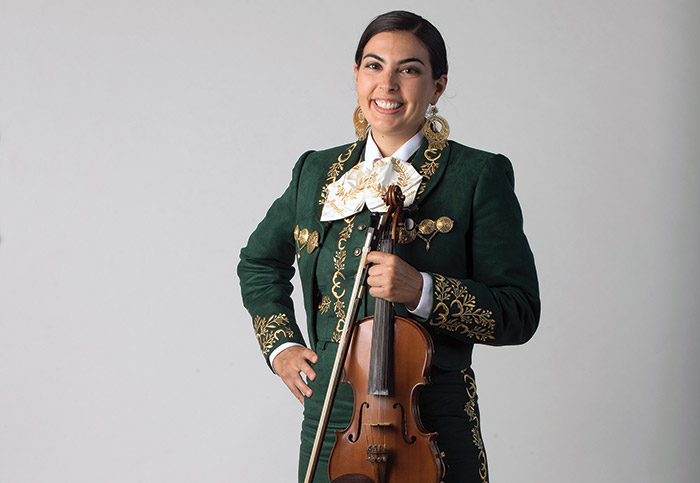
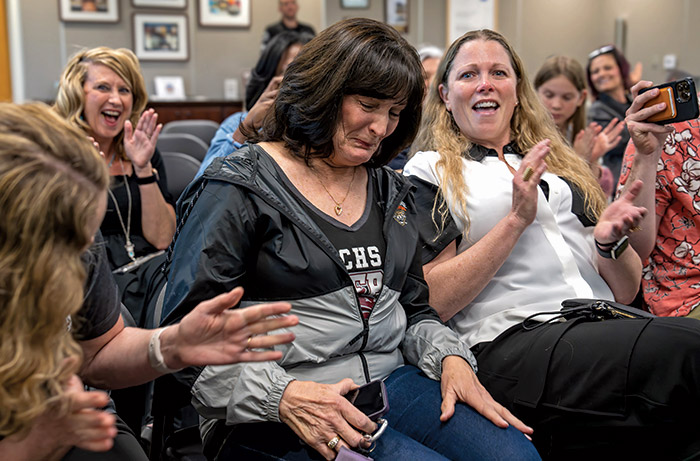
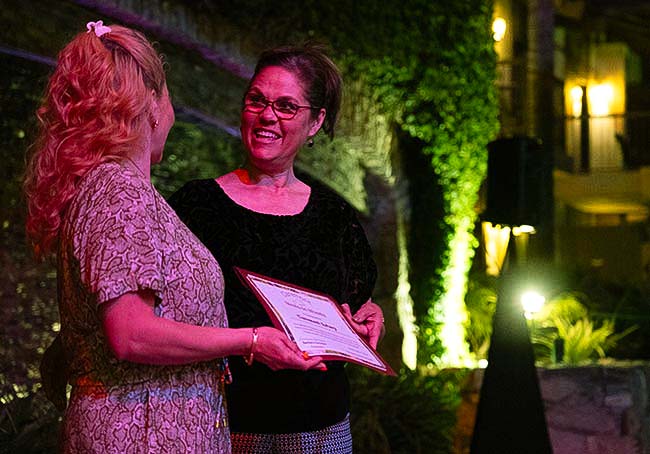
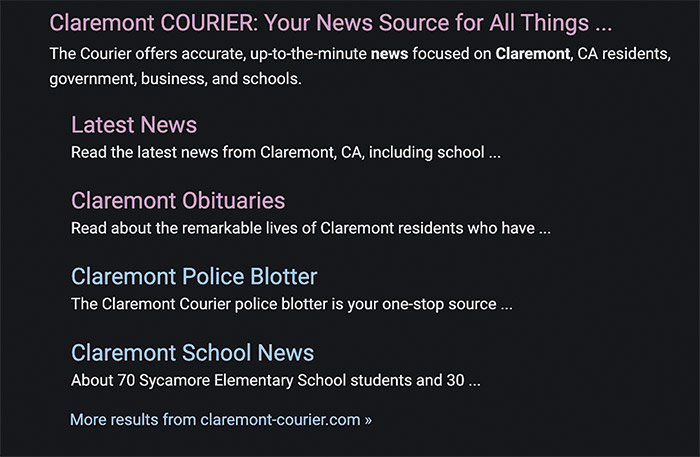


0 Comments